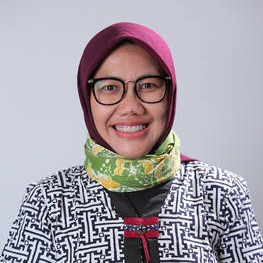Hijroatul Maghfiroh
Biography Narrative
Programme Manager for Environment and Climate Change, The Disaster and Environmental Institution of Nahdlatul Ulama
Hijroatul is currently a programme manager for environment and climate change at LPBI-NU – the Disaster and Environmental Institution of Nahdlatul Ulama. After completing her master’s degree in at Leiden University with a thesis on Islam and ecofeminism, she joined LPBI-NU, where she initiated the ‘Pesantren Hijau’ (Green Islamic Boarding School) programme that introduced an environmentally friendly culture to pesantren (Islamic boarding schools), which won her the Australia Awards Indonesia, AGS (Alumni Grant Scheme). Within the ‘Pesantren Hijau’ she also introduced an interfaith dialogue approach to addressing ecological issues called ‘eco-peace’ by bringing NU students together with non-Muslim students to discuss environmental issues. Her initiative on using interfaith dialogue to address environmental issues was influenced by her nearly ten years of experience working in an international NGO where she worked alongside the issues of peacebuilding and conflict management. Here she worked as a programme officer for peacebuilding programmes, which targeted young people using a diversity and interfaith dialogue approach. Apart from being busy as a programme manager for environment and climate change, she is also listed as a national Board member of Fatayat Nahdlatul Ulama, the largest religious-based young women’s organization in Indonesia – one of her responsibilities is as a community relation for interfaith women’s organizations.

